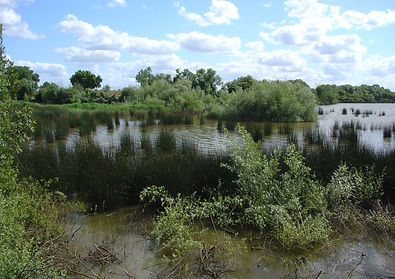Paul do Boquilobo Biosphere Reserve






Studies and Work
There are countless works and studies carried out on the Paul do Boquilobo Natural Reserve, namely on its Fauna and Flora, which has an unparalleled importance and richness in National and International terms.
Below are the most relevant works.

Planning Plan for the Natural Reserve of Paul do Boquilobo
The work of the Planning Plan for the Paul do Boquilobo Nature Reserve consisted of planning the specific occupations of the area, taking advantage of the potential of existing infrastructure and ensuring the preservation of limited resources.
This work took into account the occupations by the population of the area covered by the Natural Reserve, as well as its diversity, its interrelationships and interactions and the complexity of the reasons that justify each one of them.
The result is presented here in two reports.

Paul do Boquilobo Biosphere Reserve: Monitoring, Conservation and Tourism
The Paul do Boquilobo Natural Reserve is mainly known for its importance for the avifauna, however its relevance goes beyond its ornithological value since, in addition to many other natural aspects linked to a very rich flora and fauna, the Paul do Boquilobo has an important role in the water regulation of a very important agricultural region. It is also worth mentioning the fact that it is the largest marsh in Portugal, with the nature reserve occupying an area of 816 hectares, of which the central part stands out, with around 180 hectares, which is flooded most of the year. The recognition of the importance of this Nature Reserve by the Portuguese Government resulted, among other aspects, in the acquisition of almost all of the land that constitutes the central nucleus, in addition to a bordering area occupied by cork oak forests.

Economic Value of Linking to UNESCO Networks in Portugal
The partnership between the Unesco National Commission (CNU) and the University of Trás-os-Montes and Alto Douro (UTAD) resulted in the work that is now presented and whose general objective is to carry out an exploratory analysis of the economic value of connecting to the networks of the UNESCO in Portugal, considering the net benefits of affiliation and maintenance of the UNESCO seal, provided that applications have been accepted. Additionally, and as a result of the limitations detected in the responses to the questionnaires, some recommendations for improving future economic impact assessments and even the management processes of cultural and natural assets result.

Plants Of Interest For Ecological Foci - Campo da Golegã
Within the scope of the "Yellow Corn" Project, a project that hypothesizes that in the future investment in biodiversity management will outweigh the economic interest of cultural exploration in areas with marginal productivity, ecological structures were created in these areas with native species of the region. Selected plants can play not only a role in combating pests/diseases with less agrochemicals but also a social role in the local community.